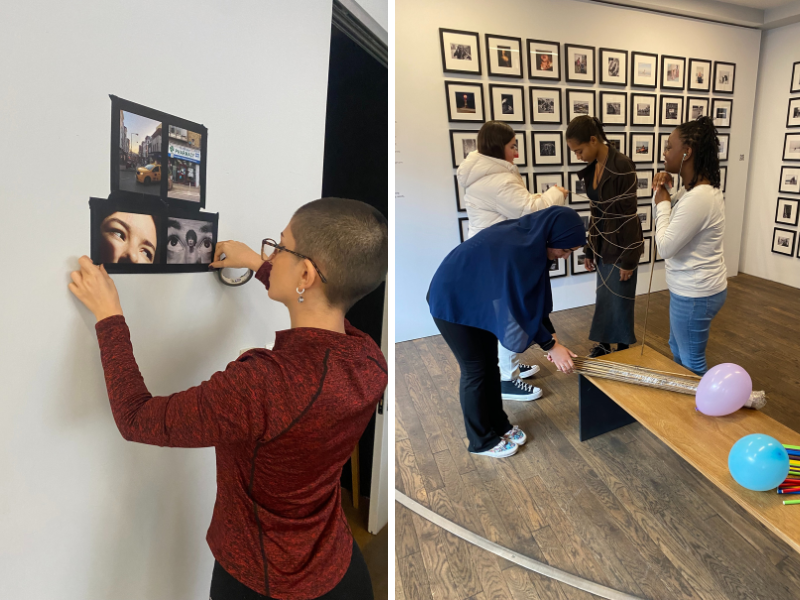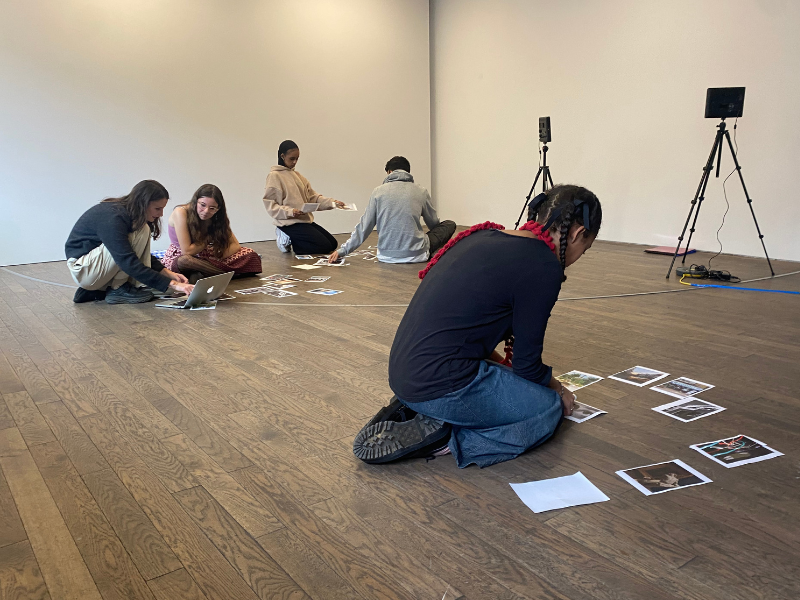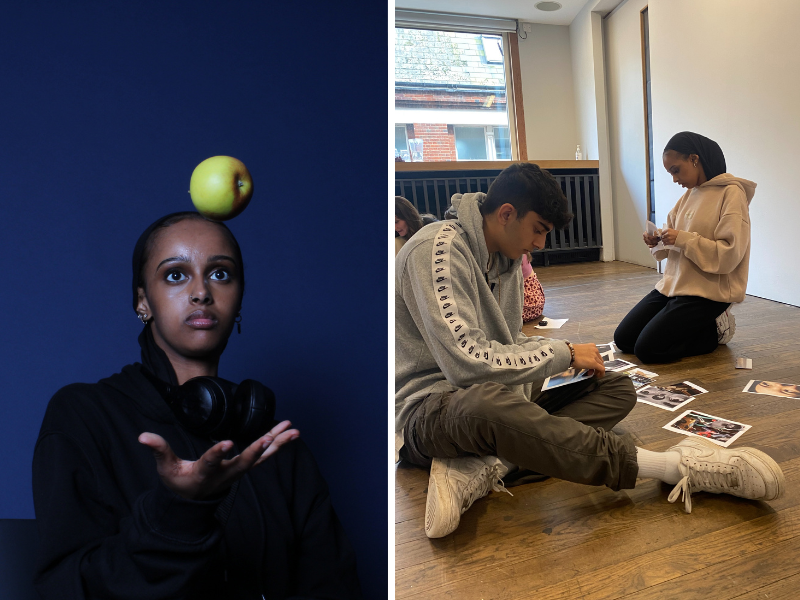EPQ in Photography: Widening Participation through Extracurricular Programming
Elle Andrews, Photographer and Artist Educator, explores how the Extended Project Qualification in Photography, in collaboration with The Photographers’ Gallery has helped pupils access areas of Art & Design education.

The Cultural Learning Alliance has flagged the declining retention of pupils studying Arts subjects, highlighting that provision for our most disadvantaged pupils is dwindling. The impact of austerity on school funding pots and the ongoing cost of living crisis have placed pressure on teachers, pupils and families, particularly those from disadvantaged backgrounds, who are so often discouraged from picking Arts subjects because of value systems reinforced through the EBacc. For three years, I have taught the Extended Project Qualification in Photography, in collaboration with The Photographers’ Gallery (TPG). I want to explore how it has helped pupils access areas of Art & Design education, despite the conditions that many Art Departments face, and share some of the benefits that young people have gained through participation.
The Extended Project Qualification (EPQ) will be familiar to most Key Stage 5 Teachers. It is a UCAS-recognised qualification, equivalent to half an A-Level, usually taken in addition to A or T-Levels within school settings. It’s renowned for strengthening university applications by providing additional UCAS points. At TPG we offer this to KS5 pupils from schools within specific London boroughs, targeting widening participation pupils who haven’t had the opportunity to study Photography. One of the programme’s precedents lies with Art History Link-Up that, since 2016, has worked with London galleries to run an EPQ in Art History. At TPG the taught content is delivered with a focus on photographic theory and practice, with teaching taking place at the gallery outside of school hours. Pupils can produce a research-based written report, or a practical inquiry with a written report, and must document their process as well as presenting their findings to an audience. Most of our pupils choose to create a practical outcome or artefact, through photobooks, zines, or websites. Pupils present their work at the gallery in the form of a group exhibition which they use to gather feedback from the public, applying this to further refine their projects. Being based at a public gallery fosters new audiences for the organisation and enables pupils to be immersed in a studio space, which differs from their school settings, with changing exhibitions on adjacent floors available as a resource.

Learners must autonomously develop ideas for their project, so we work with pupils to support deeply personal, critical investigations. As a research-led qualification there is an emphasis on developing independent research skills, as well as critical thinking, self-reflection and time management – all brilliant preparation for further studies or career paths. We encourage pupils to explore themes around vocations they aspire to, joining up the dots between the curriculum and their personal interests. Once they have decided on their focus, the resources and taught workshops are developed with learners in mind. In this way, the programme is tailored to their ideas and interests. Schemes of work incorporate a diverse selection of artists and references that they can relate to. We collaborate with an array of creative practitioners of all backgrounds, including lots of emerging talent, who thrive given the opportunity to embed pedagogy into their practice. We also engage pupils and teachers with the wider programming of the institution as a means of opening these spaces and deepening engagement. Despite their other commitments and giving up their free time to study, our pupil retention has been excellent, I believe that this is due to this sense of autonomy being at the core of the programme.
Regular extracurricular support creates space for pupils to nurture their practice, experiment and see themselves as practitioners, cultivating a long-lasting engagement with the subject. In extracurricular programming, value judgments don't need to be made on outcomes, this is somewhat true of the EPQ, where idea development, independent research and reflection hold more value than the aesthetic quality of the outcome. This enables pupils to redefine notions they may have about whether they are ‘good at Art’, creating a more inclusive practice. The assessment objectives promote a verification of sources; a skill that’s more vital now than ever. They also foster critical thinking, problem solving and decision making, encouraging deep reflection on pupils’ own learning and performance. This sort of holistic approach to studies is often lacking in other areas of the curriculum. The EPQ helps pupils articulate ideas, develop confidence and become conscious learners.
The programme helps to cultivate active, long-lasting relationships between pupils, schools and the gallery. We have had a 100 % A-C pass rate since launching, with a substantially high number of A and A* grades from pupils who had never picked up a camera or stepped into a gallery before the course. We have provided some pupils with their first ever trip out of London, amongst other personal, transformative experiences that can’t be quantified or graded.

About the author
Having overseen Photography at Kingsdale Foundation school in Southwark, for ten years, Elle Andrews began facilitating for arts organisations in 2020. She manages the Learning and Access Programme at Frameless and is Teacher of EPQ at The Photographers’ Gallery. Her practice is dedicated to breaking down barriers to learning, developing pedagogies and programmes that build community and engage and empower people of all backgrounds.
The Photographers’ Gallery has received support to develop the programme for a further 3 years. This phase aims to work more collaboratively with schools to support pupils’ photography-based EPQs, as well as providing CPD for teachers and education staff in arts organisations who might be interested in developing their own EPQ offer.
If you teach in one of the following boroughs and you’re interested in finding out if your pupils might be eligible to participate, please email [javascript protected email address]Westminster, Ealing, Kensington & Chelsea, Harrow, Camden, Hammersmith & Fulham, Barnet and Brent. We value applications from young people from widening participation backgrounds studying at schools where Photography is not on offer.